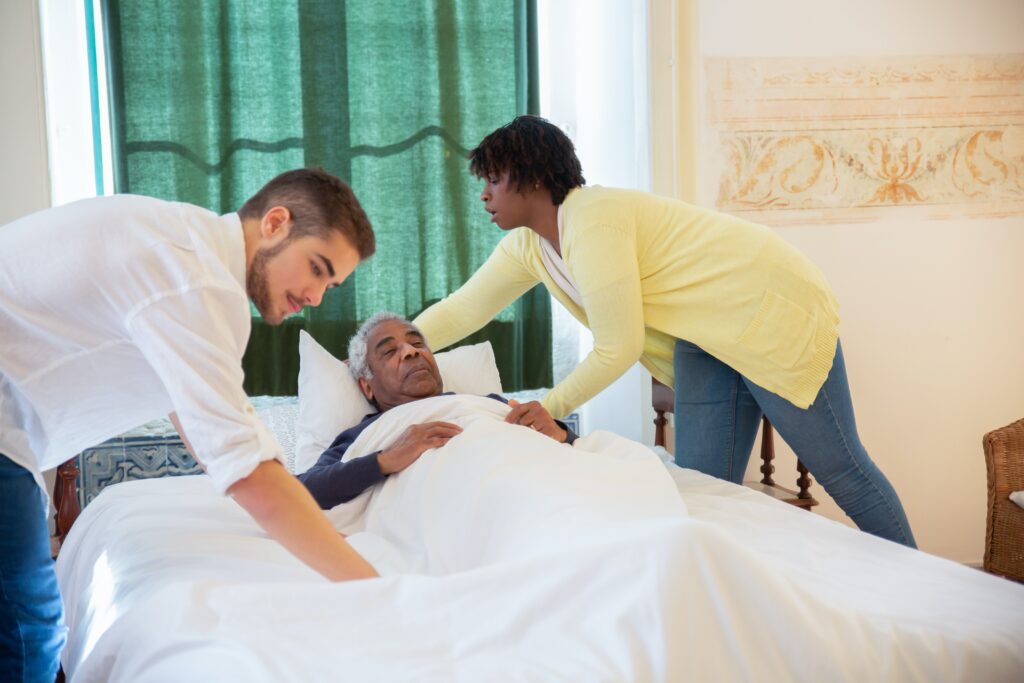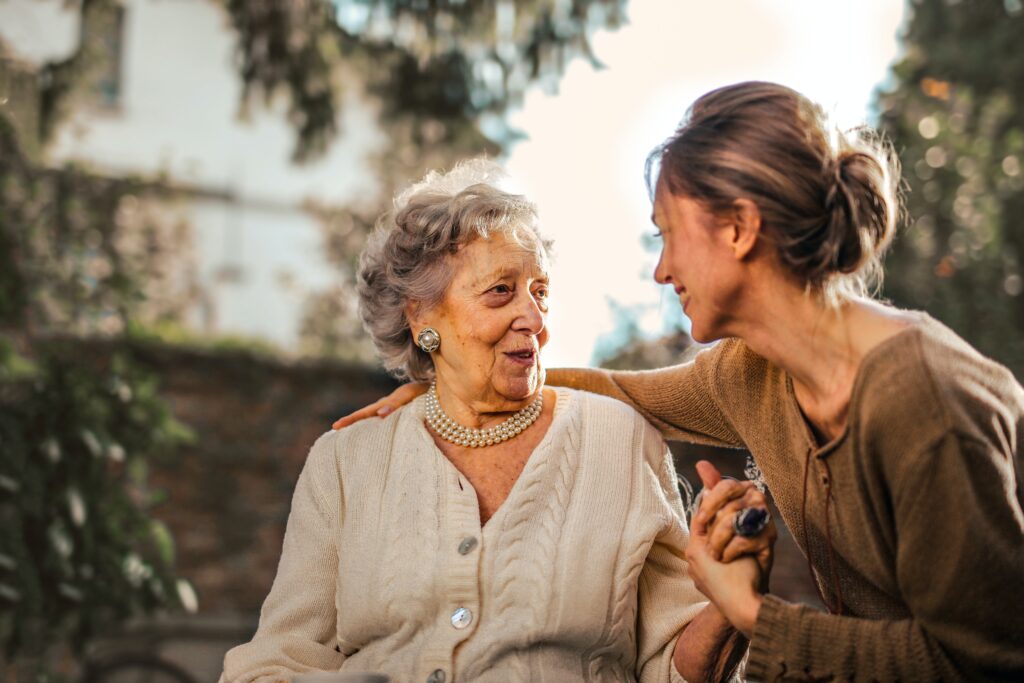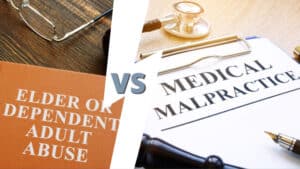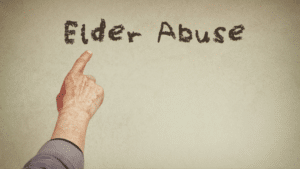Definition of Elder Physical Abuse Under California Law
The amount of elder physical abuse and elder neglect in our nation is shocking. Nearly 10% of Americans age 60 and older have experienced some form of elder abuse according to the National Center on Elder Abuse.
California Welfare and Institutions Code section 15600 protects elders (anyone 65 year of age or older) and dependent adults from many types of physical abuse and neglect. “Physical Abuse” under the law means:
(a) Assault, as defined in Section 240 of the Penal Code.
(b) Battery, as defined in Section 242 of the Penal Code.
(c) Assault with a deadly weapon or force likely to produce great bodily injury, as defined in Section 245 of the Penal Code.
(d) Unreasonable physical constraint, or prolonged or continual deprivation of food or water.
(e) Sexual assault, that means any of the following:
(1) Sexual battery, as defined in Section 243.4 of the Penal Code.
(2) Rape, as defined in Section 261 of the Penal Code.
(3) Rape in concert, as described in Section 264.1 of the Penal Code.
(4) Spousal rape, as defined in Section 262 of the Penal Code.
(5) Incest, as defined in Section 285 of the Penal Code.
(6) Sodomy, as defined in Section 286 of the Penal Code.
(7) Oral copulation, as defined in Section 288a of the Penal Code.
(8) Sexual penetration, as defined in Section 289 of the Penal Code.
(9) Lewd or lascivious acts as defined in paragraph (2) of subdivision (b) of Section 288 of the Penal Code.
(f) Use of a physical or chemical restraint or psychotropic medication under any of the following conditions:
(1) For punishment
(2) For a period beyond that for which the medication was ordered pursuant to the instructions of a physician and surgeon licensed in the State of California, who is providing medical care to the elder or dependent adult at the time the instructions are given.
(3) For any purpose not authorized by the physician and surgeon.
Nursing Homes May Also Be Liable For Resident-On-Resident Abuse And Violence
In addressing elder abuse at nursing homes and other care centers, the law originally focused on resident abuse by staff. Abuse, aggression and violence among residents may be equally prevalent.
A study from the Center for Aging Research and Clinical Care found that inappropriate, disruptive, or hostile behavior among nursing home residents is a sizable and growing problem. Nearly one in five nursing home residents were involved in at least one negative and aggressive encounter with one or more fellow residents over the previous four weeks. These included acts of verbal or physical abuse, inappropriate sexual behavior, invasion of privacy and other incidents, known collectively as resident-to-resident elder mistreatment.
The conditions at many nursing homes may exacerbate the problem. Many residents report poor lighting and noisy conditions. Elderly people with dementia or violent tendencies are housed with other residents who have little to no chance to protect themselves. The study authors called for safer spaces in dementia patient units to avoid aggravating affected residents. Another issue is overcrowding in nursing homes. Housing people in close proximity is a recipe for disaster when it comes to violent altercations.
Nursing homes and other care facilities in California must monitor patients to prevent injuries. Providing adequate security to protect residents from one another and minimize the potential for violence is part of that responsibility. Nursing home administrators must also ensure that that their staff are educated and trained to recognize and report resident-to-resident elder mistreatment, provide guidelines for staff to follow when incidents occur, and use an approach that considers the needs and abilities of individual residents.
California Elder Physical Abuse Law Rights And Remedies
California law protects elders, dependent adults, and developmentally disabled person from many types of abuse and neglect. The law provides for the recovery of damages for pain and suffering, economic damages, and punitive damages when there has been recklessness, fraud and/or patient abandonment.
Action Steps In Response To Elder Physical Abuse
If you suspect elder abuse and neglect and abuse, don’t hesitate to take action. Consider the following:
- If the senior is in immediate danger from physical abuse or has been physically abused, call 9-1-1. Elder abuse is a crime.
- Take action so that elder abuse is reported and so that appropriate civil and criminal ramifications are imposed.
For local reporting agencies call the Eldercare Locator at 1-800-677-1116 or visit their website at www.eldercare.gov. Reporting agencies may include the State Department of Social Services, the State Department of Health Services (nursing home complaint division), county Adult Protective Services (APS) and the county ombudsman.
When you call to report Elder Abuse be prepared with the following information: elder’s name, address, and contact information, the type of support received by the elder (family, medical, social care, etc.) and details of the type of elder abuse and who the abuser is.
- It is critical to document the senior’s physical condition as much as possible as well as his/her living conditions. Take photographs of the injuries the senior suffered and his or her room. Record in a notebook or computer any unsanitary conditions, poor hygiene, bedsores, physical abuse and improper restraints.
- If possible, make formal complaints to facility supervisors. Document the dates you called, who you spoke with and what the response was. Keep copies of all correspondences.
Contact An Elder Physical Abuse Attorney At The Dolan Law Firm
Once you address the senior’s immediate safety and health care needs, you will rightly be upset at how your loved one was treated. Take action and contact us without delay. The Dolan Law Firm is one the leading personal injury law firms in California. We represent seniors and families subjected to elder abuse and neglect from San Francisco, Oakland, Marin, the entire Bay Area and across California. Please click here to contact us or call us toll free at 1-888-452-4752.












